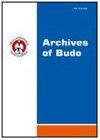妇女实现注重健康的生活方式的社会人口条件
IF 1.5
3区 医学
Q3 SPORT SCIENCES
引用次数: 9
摘要
当我们处理特定的行为模式配置时,我们可以谈论生活方式,相对恒定和重复,在存在替代行为条件的情况下。对实现生活方式至关重要的是价值观,这些价值观构成了人类行动的基础,是作出选择的标准。这项研究的目的是了解妇女实现注重健康的生活方式的社会人口条件。材料与方法:1999年至2004年间进行的研究包括1361名年龄在20-75岁之间的妇女,她们居住在波兰西部的城市,参加娱乐性体育锻炼(目的抽样)。采用诊断调查法(问卷调查法、访谈法、健康标准表法)。为了验证以健康为导向的生活方式(公认的健康和/或身体健康值与健康相关的行为:身体活动、度假形式、营养状况、避免吸烟、适度饮用酒精饮料)的条件(年龄、子女数量、职业活动)的研究假设,使用了c2独立性检验和多重对应分析。结果:认识到健康和健身价值的女性(28.1%)的主要特征是长期参加体育锻炼(p=0.0123, c2检验),选择积极的放松方式(p=0.0396, c2检验),适度饮用酒精饮料(p=0.0353, c2检验),主要是低酒精含量(p=0.0054, c2检验)。对这些价值的认识与受试者的吸烟或体重之间没有统计学上显著的相关性。认识到健康和体育活动的价值,或只认识到健康的价值,有7年或7年以上参加体育娱乐活动的历史,选择与体育活动直接相关的假期,避免饮用含酒精饮料的妇女,主要是30至49岁的职业活跃或暂时不活跃的个人,有一个孩子。结论:在社会传播体育运动的过程中,有必要在健康生活方式的背景下宣传体育运动的价值。生活方式中的这种方法可以应用于分析教育过程的结果。本文章由计算机程序翻译,如有差异,请以英文原文为准。
Socio-demographic conditions of the realization of health-oriented lifestyles by women
Background We can talk about lifestyle when we deal with certain configurations of behaviour patterns, relatively constant and repetitive, in situations where there are conditions for alternative behaviours. Vitally significant in the realization of lifestyles are values which constitute the basis for human action, the criteria for the choices made. The aim of the study was socio-demographic conditions of the realization of health-oriented lifestyles by women. Material & Methods: Research conducted between 1999 and 2004 included 1361 women aged 20–75, living in cities of western Poland and participating in recreational physical exercise (purposive sampling). The diagnostic survey method was employed (the techniques of questionnaire, interview, List of Health Criteria). For the verification of the research hypotheses concerning the conditions (age, number of children, professional activity) of a health-oriented lifestyle (the recognized health and/or physical fitness values were set together with health-related behaviours: physical activity, forms of vacation, nutritional status, avoidance of smoking, moderate consumption of alcoholic beverages) the c2 independence test and the multiple correspondence analysis were used. Results: Women who appreciated the values of health and physical fitness (28.1%) were mostly characterized by manyyear participation in physical exercise (p=0.0123 for the c2 test), choice of active forms of relaxation (p=0.0396 for the c2 test), moderate consumption of alcoholic beverages (p=0.0353 for the c2 test), mainly with low alcohol content (p=0.0054 for the c2 test). No statistically significant dependences were found between recognition of these values and smoking or body weight of the subjects. Women who recognize the values of health and physical activity, or only health, with 7 or more years of history of participation in physical recreation, choosing vacations directly connected with physical activity and avoiding consumption of alcoholic beverages, are mainly professionally active or temporarily inactive individuals aged 30 to 49, having one child. Conclusions: In the dissemination of physical activity in our society it is necessary to promote the value of physical activity, presenting it in the context of health-oriented lifestyle. Lifestyle in such an approach can be applied in analysing the results of the process of education.
求助全文
通过发布文献求助,成功后即可免费获取论文全文。
去求助
来源期刊

Archives of Budo
SPORT SCIENCES-
CiteScore
2.80
自引率
47.60%
发文量
0
审稿时长
>12 weeks
期刊介绍:
Archives of Budo is an international peer reviewed journal publishing articles on various aspects of the sports sciences covering education and research in martial arts and combat sports, and related areas like biomechanics, kinesiology, medicine, psychology, sociology, technologies of sports equipment, research in training, selection, performance, survival, and other interdisciplinary perspectives.
Archives of Budo editors endorse the principles embodied in the Helsinki Declaration and expect that all research involving humans has been performed in accordance with these principles. All human studies must have been approved by the investigator''s Institutional Review Board. A copy of the relevant documentation should be included with the manuscript. Furthermore Archives of Budo follows the ICMJE''s Recommendations for the Conduct, Reporting, Editing and Publication of Scholarly Work in Medical Journals.
Archives of Budo provides free, immediate and permanent online access to the full text of all articles distributed under the terms of the Creative Commons Attribution Non-commercial License http://creativecommons.org/licenses/by-nc/4.0), which permits use, distribution, and reproduction in any medium, provided the original work is properly cited, the use is non-commercial and is otherwise in compliance with the license.
 求助内容:
求助内容: 应助结果提醒方式:
应助结果提醒方式:


